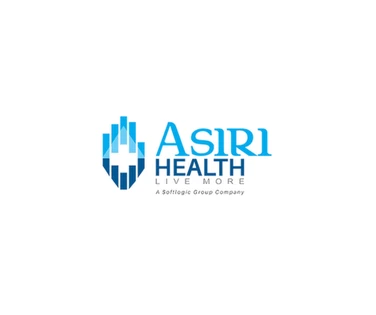Share your experience and help others understand the real-world benefits of following CLSI guidelines. Whether it's improved accuracy, enhanced efficiency, or better compliance, your story can inspire and guide fellow professionals. Submit your experience today and contribute to a global conversation on laboratory excellence!
Transforming Patient Care in Sri Lanka Through CLSI Standards
Case studies published by CLSI are solely intended to highlight and celebrate how laboratories and organizations are successfully implementing CLSI guidelines and standards in their unique settings. Inclusion in a case study does not constitute an endorsement, certification, or formal evaluation by CLSI. The practices and outcomes described are specific to the featured organization and may not be universally applicable.

Case studies published by CLSI are solely intended to highlight and celebrate how laboratories and organizations are successfully implementing CLSI guidelines and standards in their unique settings. Inclusion in a case study does not constitute an endorsement, certification, or formal evaluation by CLSI. The practices and outcomes described are specific to the featured organization and may not be universally applicable.
The Situation
When Asiri Laboratories first opened its doors in 1980, Sri Lanka had no formal laboratory regulations, no automation, and no digital infrastructure. Quality depended on handwritten notes and printed copies of NCCLS (now CLSI) guidelines, standards that became the bedrock of the country’s earliest efforts toward laboratory quality. More than four decades later, those same guidelines, now CLSI standards, remain central as Asiri Laboratories leads the industry into an era of digital tools, telemedicine, and emerging AI technology.
Leading this transformation is Neil Priyath John, the Director of Laboratory Services of Asiri Health. Having joined in 1980, just months after its founding, Neil has spent more than four decades guiding Asiri's growth from a paper-based, regulation-free environment to one of Sri Lanka’s most advanced private laboratory networks. His career reflects the evolution of the country’s diagnostic landscape, with CLSI standards serving as a constant source of guidance and benchmarking along the way.
The Solution
To address the lack of local regulation and formal laboratory practices, Neil and his team turned to CLSI standards.These guidelines became essential references for everything from basic testing procedures, like erythrocyte sedimentation rates (ESR), to laboratory layout planning and waste control.
“In those early days, the absence of formal regulations of standards for medical laboratories led me to adopted printed NCCLS guidelines as a foundation for quality and compliance. These standards have since become enduring benchmarks in our country,” Neil said.
Over time, Asiri Laboratories embedded these standards into its daily operations, eventually digitizing them into an intranet system that streamlined access for staff. CLSI M100 | Performance Standards for Antimicrobial Susceptibility Testing, proved especially influential, becoming the national reference standard across Sri Lanka.
Beyond internal adoption, Neil actively shared these resources with the Ministry of Health, the Private Hospital and Nursing Home Services Regulatory Council (PHSRC), and professional bodies across the country. This advocacy helped establish CLSI standards as the backbone for both private and public laboratory practice, while also aligning Sri Lanka’s laboratories with international benchmarks.
“When we became a member of NCCLS (now CLSI), there was no local authority issuing laboratory guidelines. We used these printed books extensively and shared them with the Ministry of Health and other professional bodies. Many of these recommendations have since been implemented nationally,” Neil said.
The Outcome
The adoption and advocacy of CLSI standards reshaped laboratory medicine in Sri Lanka. Today, nearly 80% of diagnoses in the country are supported by laboratory test results, compared to just 40-50% three decades ago. Turnaround times have improved dramatically, allowing more patients to be treated per hospital bed in a health care system where public care is free, but capacity is limited.
At Asiri Laboratories, tests such as prothrombin time, antimicrobial sensitivity, capillary blood collection, and sample rejection criteria were standardized using CLSI guidance, many of which later became national benchmarks. By integrating these standards into their intranet system, Asiri also reduced variation across their network and ensured staff could access quality practices consistently.
“Faster and more accurate diagnoses now contribute to longer and better quality of life for the public,” Neil said.
Impact
The influence of CLSI standards has extended far beyond the walls of Asiri Laboratories. By advocating with regulatory bodies such as the PHSRC and the Ministry of Health, Neil helped ensure that CLSI guidelines became part of Sri Lanka’s national framework for laboratory quality. CLSI M100 now serves as the country’s official reference for AST.
These contributions have elevated patient care and safety on a national scale, while also aligning Sri Lanka laboratories with international best practices. Asiri Laboratories continues to lead the way, serving as a model for private networks in the region and collaborating with partners in India to prepare for the next generation of tools, including artificial intelligence and machine learning.
“Learning never stops. We have been proud, long-standing members of CLSI and other international organizations, and we remain committed to preparing the next generation of laboratorians for the future,” Neil said.
Share Your Experience with CLSI Standards in your Laboratory
